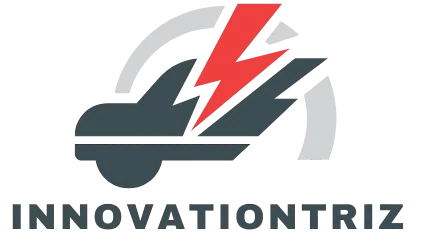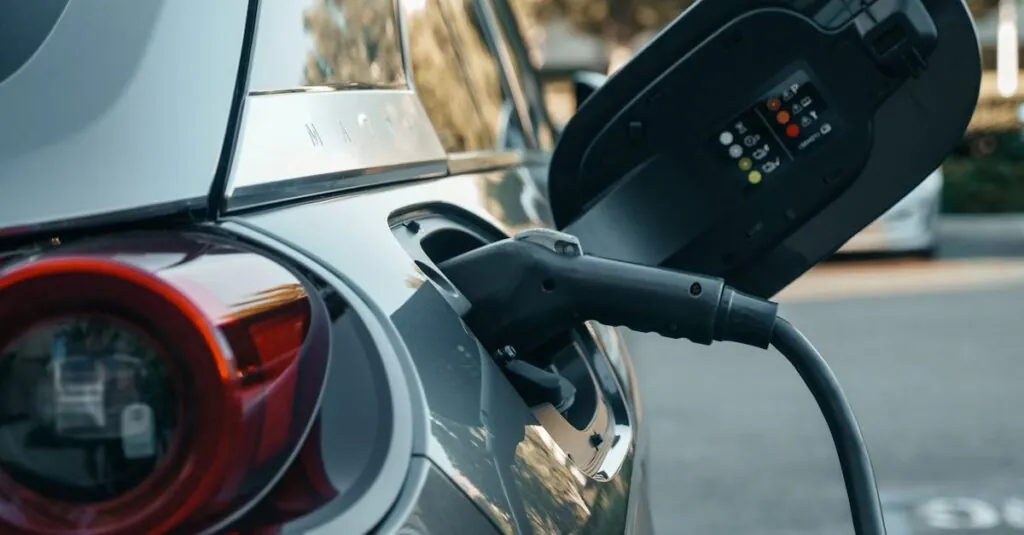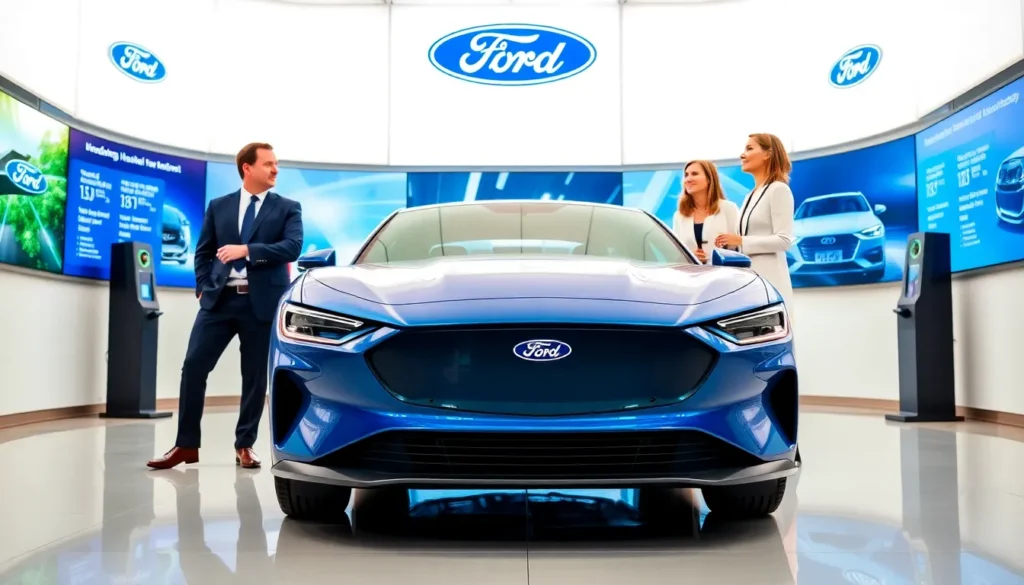Table of Contents
ToggleImagine cruising down the highway in your electric vehicle, wind in your hair, and the open road ahead. Suddenly, the dreaded low-battery warning pops up like an uninvited guest at a party. Fear not! Smart EV routing is here to save the day. This cutting-edge technology takes the guesswork out of charging, ensuring drivers can navigate their journeys without the anxiety of running out of juice.
Overview of Smart EV Routing
Smart EV routing technology transforms the driving experience for electric vehicle owners. This system utilizes real-time data to guide drivers to the nearest charging stations, optimizing travel routes based on battery levels and traffic conditions. By calculating the best path, it minimizes travel time and energy consumption.
Innovative algorithms determine the ideal charging stops along the route. Specific factors, such as charging station availability and charging speed, play significant roles in these algorithms. The technology adapts to changing circumstances, providing alternative routes if needed.
User-friendly interfaces provide clear navigation instructions. Drivers can access detailed information about charging station types, amenities, and estimated wait times. The accessibility of this information enhances confidence while traveling.
The integration of smart EV routing with mobile apps further enhances its functionality. Drivers can plan long-distance trips, ensuring they reach their destination without running low on battery. These apps often include features like route optimization and charging station reservation.
Data-driven insights boost the overall EV experience. Continuous improvements in routing efficiency lead to shorter wait times and better range management. This benefits not only individual drivers but also supports the growth of electric vehicle infrastructure.
Increasing adoption of smart EV routing promotes sustainable transportation. By maximizing energy use and reducing unnecessary charging stops, it contributes to eco-friendly travel practices. This aligns with wider goals of reducing carbon emissions and promoting renewable energy sources.
Key Features of Smart EV Routing
Smart EV routing offers critical advantages for electric vehicle drivers. It utilizes advanced technologies to enhance the driving experience while minimizing range anxiety.
Real-Time Traffic Data
Real-time traffic data significantly improves route planning. Connections between charging stations and current traffic conditions allow drivers to avoid congested areas. Responsiveness to live updates ensures optimized travel times. Smart algorithms adjust routes based on changing traffic patterns, providing the most efficient paths. As drivers navigate, they can receive alerts on accidents or road closures that could affect their journey. This dynamic approach leads to time savings and reduced stress, keeping drivers informed throughout their travels.
Charging Station Availability
Charging station availability plays a vital role in smart EV routing. The system identifies nearby stations based on real-time inventory status. Drivers access up-to-date information on available chargers, indicating occupancy and charging speed. Accessibility of charging infrastructure assists in planning long-distance trips more efficiently. Integration with mapping tools often highlights preferred routes, incorporating multiple stations if necessary. Ultimately, knowing where stations are located and their readiness empowers drivers to charge more effectively during trips.
Benefits of Smart EV Routing
Smart EV routing delivers numerous advantages for electric vehicle drivers, enhancing their overall travel experience. This technology offers optimized navigation and charging solutions, minimizing the challenges associated with long-distance drives.
Improved Efficiency
Utilizing real-time data, smart EV routing significantly increases travel efficiency. Drivers receive optimal routing options that consider battery levels, traffic conditions, and charger availability. Algorithms analyze current traffic patterns to suggest alternative routes, reducing delays. With accurate data on charging station inventory, drivers find accessible stations, ensuring minimal downtime. Smart routing not only saves time but also maximizes energy use, ultimately leading to fewer stops and smoother journeys.
Reduced Range Anxiety
Smart EV routing alleviates range anxiety by providing drivers with accurate, real-time information. Battery status updates allow for informed decisions on when and where to charge. When unexpected detours arise, the system recalibrates routes to guide users to the nearest available charging station. Clear navigation instructions reduce uncertainty during trips, encouraging drivers to venture further. With a straightforward interface, planning long-distance trips becomes manageable, promoting confidence in electric vehicle travel.
Challenges in Implementing Smart EV Routing
Smart EV routing faces several significant challenges that affect its widespread adoption and effectiveness.
Data Privacy Concerns
Data privacy poses a critical challenge in smart EV routing. This technology relies on the collection of sensitive data, such as location and travel habits. Users often fear that their personal information may be misused or accessed by unauthorized parties. Companies must prioritize data encryption and secure storage solutions to build trust among consumers. Regulatory compliance with data privacy laws, like the General Data Protection Regulation (GDPR), is essential for avoiding legal liabilities. Addressing these issues fosters consumer confidence, encouraging more users to adopt smart routing solutions for their electric vehicles.
Infrastructure Limitations
Infrastructure limitations present another hurdle for smart EV routing. The existing charging networks often do not meet the increasing demand from a growing number of electric vehicles. Many regions lack sufficient charging stations, which complicates route planning for long-distance trips. Limited availability of fast-charging stations can lead to longer wait times, frustrating drivers. Furthermore, the integration of smart EV routing systems with current infrastructure requires substantial investment and coordination among various stakeholders. Upgrading outdated charging stations and expanding networks is necessary to support the full potential of smart routing technologies.
Future Trends in Smart EV Routing
Emerging technologies significantly influence the future of smart EV routing. Enhanced artificial intelligence plays a central role in optimizing route planning. This advancement allows for more precise traffic predictions and charging station availability assessments. Improved algorithms analyze a vast array of variables, ensuring drivers receive the most efficient routes.
Integration with advanced mapping services improves user experience. This enhancement provides drivers with real-time updates on traffic conditions and charging station statuses. More importantly, the collaboration between EV manufacturers and tech companies leads to standardized smart routing interfaces. This standardization streamlines access to information across different vehicle models.
Sustainability goals drive the innovation behind smart EV routing. As the demand for electric vehicles increases, so does the need for effective energy management. Innovations aim to maximize energy consumption efficiency, enabling longer ranges with fewer charging stops. This approach encourages widespread EV adoption, contributing to reduced carbon emissions.
The rise of electric vehicle popularity necessitates the development of better infrastructure. Local governments begin investing in charging networks to support smart routing applications. This investment improves accessibility, expanding charging stations in urban and rural areas alike.
Furthermore, data privacy will play a crucial role in the evolution of smart EV routing. Companies refine their policies to protect user information in compliance with regulations like GDPR. Transparent data practices will foster consumer trust, essential for the future acceptance of smart technologies.
Shifting consumer preferences also drive advancements in smart EV routing. As more drivers prioritize sustainability, they seek technologies that streamline their green travel experiences. Enhanced functionality and convenience will likely dominate future iterations of EV routing software.
Smart EV routing is reshaping the electric vehicle landscape by enhancing the driving experience and promoting sustainability. As technology evolves drivers can expect more efficient navigation that not only eases range anxiety but also maximizes energy use. The integration of real-time data and user-friendly interfaces ensures that navigating to charging stations becomes seamless.
Looking ahead the collaboration between tech companies and EV manufacturers is set to standardize routing solutions making them accessible across various vehicle models. With ongoing investments in charging infrastructure and a focus on data privacy the future of smart EV routing promises to be both innovative and consumer-friendly. As preferences shift towards sustainable transportation smart EV routing will play a pivotal role in encouraging widespread electric vehicle adoption.




